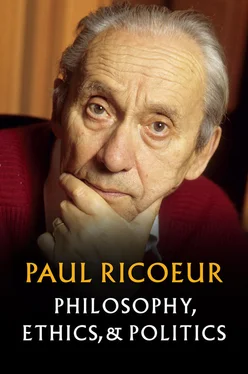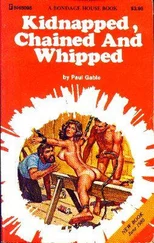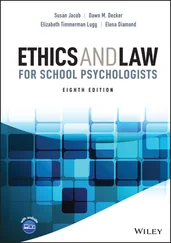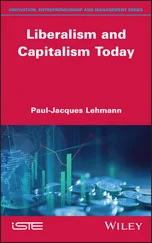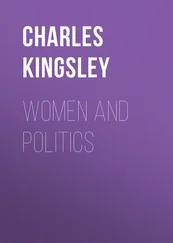Today we have models of universalities that have nothing to do with that proposed by Hegel, or any other philosophy of history. We have the model of the American philosopher, John Rawls, with his theory of justice. Or that of the German philosopher, Jürgen Habermas, with his ethics of communication and argumentation. What is universal is the capacity for argumentation, independent of the content of the arguments. Today the problem is no longer linking the universal to the singular but rather the abstract universal to the historical. This debate finds one of its expressions in the rebirth of nationalism. On the one hand, nationalism seduces by the concrete richness of its content, its mores, its practices, its shared convictions, and ultimately by its purely ethnic identity. On the other hand, a purely abstract conception of universality leaves us unsatisfied. One of our great contemporary problems lies in connecting this abstract universal with the history of communities. On one side, we find the tradition of the social contract, which is an abstract reality, and on the other, the tradition of shared communities, which are concrete realities.
There are parts of the world where this dilemma has not yet reached maturity or where it is not even perceived at all. Whether this is in Yugoslavia or in other conflicts of the same type, we lack a sense of history in this regard. In our geopolitical era, we are judging within the framework of a political morality born in 1945. At that time, we made a sort of pledge, implicit throughout all of Europe, that we would no longer treat one another as we had previously done in world wars. However, there is a part of Europe where this message was not received, and it continues to behave as we had up to 1945. I am also thinking of Algeria, confronted with two forms of corruption, that of the FIS [Front islamique du salut] and that of the FLN State [Front de libération nationale]. In regressive situations such as these, faced with grave moments of disaster, only a few committed individuals, only a few indomitable consciences, are responsible, in reality, for the future of civilized society. For me, conviction is the response to crisis: my place is assigned, the hierarchy of preferences compels me, the intolerable transforms me from a timid or disinterested spectator into a person of conviction, who discovers in creating and creates in discovering. The lucidity of our gaze does not spare us from engagement in protest or from the will to repair breaches.
Your philosophical thought seems to me to be based more on a reinterpretation of Kantian republicanism than on an act of religious faith. For, if every person is to be considered an end in himself or herself and not a means to an external end, does this not presuppose that in reality it is otherwise? Have you not asked yourself whether what is left unexamined in this Kantian precept is not, deep down, the exploitation of one person by another?
In one of his political writings, Kant speaks of “unsocial sociability.” On the judicial level, the law, and on the political level, the Rule of Law [ l’État de droit ], serve to make possible the coexistence of beings whose desires and interests are often in conflict. The fact that we aren’t at one another’s throats, that we accept to live together, constitutes a minimum of consensus. Conflict is not, for all that, absent from the scene inasmuch as, individually or collectively, we have competing interests. Contemporary society is increasingly conflictual because it is increasingly complex. Conflict is not a misfortune, but a structural element in a society in which, as the diversity of projects never ceases to grow, a rule of the game that will make coexistence possible is ever more urgent. This future, however, raises in return the entirely new question regarding the people who are excluded from this rule of the game. The result of this exclusion is a form of poverty completely unlike the poverty of the nineteenth century, which was placed along the same scale as wealth. Today inclusion and exclusion are incommensurable. I want to express how politically disturbing I find the increasing numbers of people who are socially excluded. There are people who are totally outside, even outside of any alternative, and this is without precedent. I have frequently worked with people like the ATD Fourth World [Agir Tous pour la Dignité Quart Monde]. There is now a fringe of marginal people who are no longer members of the social contract. How are they to be integrated? By helping them to find work, housing? But, precisely, looking for work or housing implies that one belongs to the social body. This is a big question posed to Western societies: can they integrate everyone? I don’t know if this is inscribed within the Marxist framework or if, instead, exclusion has taken the place of exploitation. In the latter case, are the same descriptions, the same explanations, the same remedies still valid?
It remains to be seen whether exclusion takes the place of exploitation or whether it is the form of exploitation pushed to extreme, something like the modern version of the old concept of Lumpenproletariat about which so many contradictory things have been written…
I am thinking here of a text that was fundamental, despite its narrowness and its excesses – the Communist Manifesto of 1848. The hypothesis is that the proletariat are part of the social circle because they had to organize themselves into a class among the other classes. Those excluded today are no longer capable of forming a class. They are “outsiders” [“ hors classe ”]. This raises new questions concerning parliamentary democracy, majoritarian democracy. There now exists a sufficiently large number of people who are satisfied to no longer allow the disadvantaged to become the focus of a political alternative. This is for me a matter of serious concern. I had begun to reflect on this problem during my years in America. While American society still has a large capacity for integration, those who have left the system no longer constitute even an alternative. I do recognize how the American Democratic Party has served for a long time to represent the minorities it includes. In this way, minorities were directly part of the system. Today in the United States, a quarter of the population lives in real poverty. In France, the problem of exclusion concerns all the parties on the Left, including the Communist Party. Is it around those most disadvantaged but who still remain part of the system, or starting with those who are outside the system, that the possibility can be envisaged of joining the excluded together with the included who are at the bottom of the social ladder?
1 1 Interview with Arnaud Spire, Humanité, 90th Anniversary special edition, April 21, 1994.
2 2 Paul Ricoeur, Philosophie de la volonté; I. Le Volontaire et l’Involontaire (Paris: Aubier, 1950). Philosophie de la volonté; II. Finitude et culpabilité; 1. L’Homme faillible; 2. La Symbolique du mal (Paris: Aubier, 1960; Le Seuil, 2009). Freedom and Nature: The Voluntary and the Involuntary, tr. E. V. Kohak (Evanston: Northwestern University Press, 1966). Fallible Man, tr. C. Kelby (Chicago: Henry Regnery, 1965). The Symbolism of Evil, tr. E. Buchanan (Boston: Beacon Press, 1969).
3 3 Paul Ricoeur, La Métaphore vive (Paris: Le Seuil, 1975). The Rule of Metaphor, tr. R. Czerny (Toronto: University of Toronto Press, 1978).
4 4 Olivier Mongin, Paul Ricoeur (Paris: Le Seuil, 1994; Points Essais, 1998).
5 5 Ricoeur, History and Truth, pp. 247–70.
6 6 Ricoeur, Oneself as Another, p. 170.
7 7 Ricoeur, Oneself as Another, p. 268.
Конец ознакомительного фрагмента.
Читать дальше
